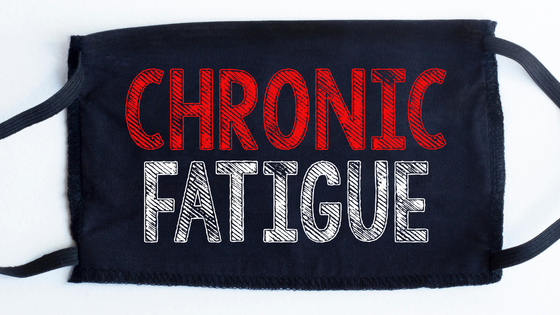Introduction
Living with a chronic illness often feels like navigating an endless journey filled with physical, emotional, and mental challenges. Chronic illnesses mental health not only affect our bodies but also have a profound impact on our emotional well-being. This impact can manifest in various ways, making it essential to address mental health alongside physical health.
I remember the day my doctor diagnosed me with an autoimmune disease. It was as if the ground had shifted beneath my feet. The physical symptoms were challenging, but the emotional toll was unexpected and overwhelming. The constant pain and fatigue were coupled with feelings of grief for the life I once knew, anger at my body’s betrayal, and frustration over the uncertainty of my future. This personal experience highlighted the importance of understanding and managing the emotional and mental aspects of chronic illness.
Addressing emotional and mental health is crucial in chronic illness management because it affects every aspect of our lives. When we neglect our mental well-being, it can exacerbate physical symptoms, decrease our quality of life, and make it even harder to cope with the daily challenges of chronic illness. By acknowledging and addressing these aspects, we can better manage our overall health and improve our resilience.
Understanding the Emotional Impact of Chronic Illness Mental Health
Chronic illness often triggers a range of emotional responses that can vary from person to person. Common emotions include grief, anger, frustration, and fear. Grief can arise from the loss of one’s previous health and lifestyle. Anger and frustration may stem from the limitations imposed by the illness, and fear can be a constant companion due to the unpredictability of symptoms and the future.
These emotional responses can lead to feelings of isolation and loneliness. Chronic illness mental health issues can make it difficult to maintain social connections and engage in activities that were once enjoyable. The lack of understanding and support from others can further deepen the sense of isolation, making it harder to cope with the emotional burden.
Personally, I have faced numerous emotional challenges due to my chronic illness. There were days when the pain and fatigue were so intense that it felt like a battle just to get out of bed. The constant cycle of hope and disappointment with each new treatment took a toll on my mental health. Feeling misunderstood and isolated, I struggled to find a balance between managing my illness and maintaining my emotional well-being. It was through this journey that I learned the importance of addressing and nurturing my mental health as an integral part of my chronic illness management.
Identifying Chronic Illness Mental Health Symptoms
Chronic illness can significantly impact mental health, leading to various symptoms that may often go unrecognized or unaddressed. Common mental health symptoms associated with chronic illness include depression, anxiety, and chronic stress. These chronic illness mental health symptoms can exacerbate physical conditions, creating a vicious cycle that makes managing the illness even more challenging.
Common Mental Health Symptoms
- Depression: Persistent feelings of sadness, hopelessness, and a lack of interest or pleasure in activities once enjoyed.
- Anxiety: Excessive worry, nervousness, and fear about everyday situations, often accompanied by physical symptoms like increased heart rate and sweating.
- Chronic Stress: Constant feeling of being overwhelmed, irritable, and unable to cope with daily demands.
Recognizing These Symptoms
Recognizing chronic illness mental health symptoms in yourself and others is crucial for early intervention and effective management. Share on XHere are some signs to look out for:
- Changes in Mood: Sudden or prolonged periods of sadness, irritability, or mood swings.
- Behavioral Changes: Withdrawal from social activities, loss of interest in hobbies, changes in sleep or eating patterns.
- Physical Symptoms: Unexplained aches and pains, fatigue, and changes in weight.
- Cognitive Symptoms: Difficulty concentrating, making decisions, or remembering things.
It’s essential to be mindful of these signs and take them seriously. If you notice these symptoms in yourself or someone you care about, it’s important to seek help and support.
Addressing these symptoms early on can make a significant difference in managing the emotional challenges of chronic illness mental health. By being aware of the signs and seeking appropriate help, we can better navigate the complex journey of living with a chronic condition.
5 Key Approaches to Support Chronic Illness Mental Health
1. Establish a Routine
Establishing a daily routine can be incredibly beneficial for those with chronic illness. A routine provides structure and predictability, which can help manage symptoms and reduce stress. It creates a sense of normalcy and control, which is often disrupted by chronic illness.
Benefits of a Routine
- Reduces Stress: Knowing what to expect each day can alleviate anxiety and stress.
- Improves Sleep: Consistent sleep schedules can improve the quality of sleep.
- Enhances Productivity: Having a set plan can help accomplish tasks and goals, boosting a sense of achievement.
Tips for Creating a Manageable Routine
- Start Small: Begin with simple tasks and gradually add more activities.
- Be Flexible: Allow room for adjustments based on how you feel each day.
- Prioritize Self-Care: Include time for rest, relaxation, and activities that bring you joy.
- Set Realistic Goals: Avoid overwhelming yourself with too many tasks.
2. Mindfulness and Meditation
Mindfulness and meditation are powerful tools for improving mental health, particularly for those managing chronic illness mental health. These practices encourage living in the present moment, which can reduce stress and improve overall well-being.
Benefits of Mindfulness and Meditation
- Reduces Anxiety: Mindfulness helps in managing racing thoughts and anxiety.
- Improves Focus: Regular practice can enhance concentration and cognitive function.
- Promotes Relaxation: Meditation activates the body’s relaxation response, reducing stress.
Simple Mindfulness Exercises and Meditation Techniques
- Deep Breathing: Practice deep breathing exercises for a few minutes each day.
- Body Scan Meditation: Lie down and mentally scan your body from head to toe, noticing areas of tension.
- Mindful Walking: Pay attention to the sensations of walking, such as the feeling of your feet on the ground and the rhythm of your breath.
3. Connect with a Support Network
Having a support system is vital for managing the emotional challenges of chronic illness mental health. Family, friends, and support groups can provide the encouragement, understanding, and companionship necessary to navigate difficult times.
Importance of a Support System
- Emotional Support: Loved ones can offer empathy, comfort, and a listening ear.
- Practical Assistance: Family and friends can help with daily tasks and responsibilities.
- Shared Experiences: Support groups allow you to connect with others who understand your struggles.
Ways to Find and Build a Supportive Community
- Join Support Groups: Look for local or online groups focused on your specific illness.
- Engage in Community Activities: Participate in community events and activities where you can meet new people.
- Utilize Social Media: Platforms like Facebook and Instagram have communities and groups for chronic illness support.
- Reach Out: Don’t hesitate to ask for help from friends, family, or healthcare providers.
4. Engage in Physical Activity
Physical activity plays a crucial role in improving chronic illness mental health, even for those with chronic illness. Exercise can boost mood, reduce anxiety, and improve overall well-being.
Role of Exercise in Mental Health
- Mood Enhancement: Exercise stimulates the production of endorphins, which are natural mood lifters.
- Stress Reduction: Physical activity helps lower levels of stress hormones like cortisol.
- Improved Sleep: Regular exercise can promote better sleep patterns, essential for mental health.
Suggestions for Gentle, Chronic Illness-Friendly Physical Activities
- Kangoo Bounce/Jump: A low-impact, fun activity that is easy on the joints and boosts cardiovascular health.
- Yoga: Gentle stretching and strengthening exercises that promote relaxation and flexibility.
- Swimming: A low-impact exercise that is easy on the body while providing a full-body workout.
- Walking: Simple and accessible, walking can be adjusted to your pace and energy level.
5. Seek Professional Help
Professional mental health support can be a crucial component of managing the emotional challenges associated with chronic illness mental health. Therapists and counselors provide a safe space to explore feelings, develop coping strategies, and receive guidance tailored to your unique needs.
Importance of Professional Mental Health Support
- Expert Guidance: Mental health professionals are trained to help you navigate complex emotions and mental health issues.
- Objective Perspective: A therapist or counselor can offer an unbiased view and help identify patterns or issues you might not see.
- Personalized Support: Therapy sessions can be customized to address your specific challenges and goals.
How to Find a Mental Health Professional Experienced with Chronic Illness
- Ask for Recommendations: Seek referrals from your primary care doctor, friends, or family members.
- Research Online: Use online directories such as Psychology Today , Therapy Tribe or Melanin and Mental Health to find therapists specializing in chronic illness mental health.
- Check Credentials: Ensure the therapist is licensed and has experience in dealing with chronic illness mental health.
- Consult Professional Organizations: Organizations like the American Psychological Association (APA) can provide resources and referrals.
Here are some tips for navigating therapy:
- Be Open and Honest: Share your symptoms, concerns, and goals openly with your therapist.
- Be Patient: Finding the right therapist and approach might take time, but it’s worth the effort.
- Prioritize Self-Care: Therapy can be emotionally intense, so make sure to take care of yourself between sessions.
- Stay Committed: Regular attendance and active participation in therapy sessions are essential for progress.
Lifestyle Adjustments for Mental Well-being
Making lifestyle changes can significantly improve mental health, especially for individuals managing chronic illness mental health. By focusing on key areas such as diet, exercise, sleep, and stress management, you can create a supportive environment that promotes overall well-being.
How Lifestyle Changes Can Improve Mental Health
Dietary Adjustments for Mental Health
Eating a balanced, nutritious diet can significantly boost mood, energy levels, and overall health. Certain foods, like those rich in omega-3 fatty acids, vitamins, and minerals, support brain health and can reduce symptoms of depression and anxiety. To maximize these benefits, focus on anti-inflammatory foods that are gentle on the digestive system. Incorporate fresh fruits, vegetables, lean proteins, and healthy fats into your diet, and avoid processed foods, excessive sugar, and allergens that might exacerbate your symptoms.
Exercise for Mental Health
Regular physical activity releases endorphins, which are natural mood lifters. Exercise also reduces stress, improves sleep, and enhances cognitive function. Here are some chronic illness-friendly activities to consider:
- Kangoo Bounce/Jump: A fun, low-impact exercise that is easy on the joints and provides cardiovascular benefits.
- Yoga: Gentle stretching and strengthening exercises that promote relaxation and flexibility.
- Swimming: A full-body workout that is easy on the body and improves cardiovascular health.
- Walking: A simple, accessible activity that can be adjusted to your pace and energy level.
Importance of Sleep for Mental Health
Quality sleep is essential for both mental and physical health. Proper sleep hygiene, such as maintaining a regular sleep schedule and creating a restful environment, can significantly improve sleep quality and reduce fatigue. Here are some tips for establishing effective sleep hygiene:
- Consistent Sleep Schedule: Go to bed and wake up at the same time every day.
- Relaxing Bedtime Routine: Incorporate activities such as reading, taking a warm bath, or listening to calming music to promote relaxation.
- Comfortable Sleep Environment: Ensure your bedroom is cool, dark, and quiet, and invest in a comfortable mattress and pillows.
Stress Management for Mental Health
Effective stress management techniques can lower stress levels and improve mental resilience. Here are some proven stress management techniques:
- Mindfulness Meditation: Practice mindfulness to stay present and manage stress.
- Deep Breathing Exercises: Use deep breathing techniques to calm your mind and body.
- Journaling: Write down your thoughts and feelings to process emotions and reduce stress.
- Creative Outlets: Engage in activities like drawing, painting, or crafting to express yourself and relax
By incorporating these lifestyle adjustments, you can create a supportive environment that enhances your mental well-being. Small, consistent changes in diet, exercise, sleep, and stress management can have a profound impact on your overall health, making it easier to cope with the challenges of chronic illness mental health.
Dealing with Stigma and Misunderstanding
Navigating chronic illness mental health often involves not just managing symptoms but also navigating societal stigma and misunderstanding. These external challenges can add to the emotional and mental burden of chronic illness, making it crucial to address them proactively.
Addressing Societal Stigma and Misunderstanding
Strategies for Advocating for Yourself and Educating Others
Mental Health Resources for Individuals with Chronic Illness
Chronic illness mental health is a crucial aspect of living with chronic illness. Fortunately, there are numerous resources available to provide support, information, and tools to help you navigate the emotional and mental challenges. Below is a comprehensive list of resources, including organizations, apps, podcasts, and more.
Online Therapy and Counseling Services
- BetterHelp
- Offers affordable, private online counseling anytime, anywhere with licensed therapists.
- www.betterhelp.com
- Talkspace
- Provides online therapy with licensed therapists for individuals, couples, and teens.
- www.talkspace.com
- 7 Cups
- Offers free emotional support and counseling from trained listeners and licensed therapists.
- www.7cups.com
- Therapy Tribe
- An online community offering a directory of therapists and various mental health support groups.
- www.therapytribe.com
Crisis Intervention Resources
- SAMHSA’s National Helpline
- www.samhsa.gov/find-help/national-helpline
- Phone: 1-800-662-HELP (4357)
- National Suicide Prevention Lifeline
- 24/7, free, and confidential support for people in distress, prevention and crisis resources.
- www.suicidepreventionlifeline.org
- Phone: 1-800-273-8255
- Crisis Text Line
- Provides free, 24/7 support via text message for individuals in crisis.
- www.crisistextline.org
- Text: “HELLO” to 741741
- The Trevor Project
- Provides crisis intervention and suicide prevention services to LGBTQ+ youth.
- www.thetrevorproject.org
Support Groups and Community Resources
- NAMI (National Alliance on Mental Illness)
- Provides support groups, resources, and advocacy for individuals and families affected by mental illnes
- www.nami.org
- Chronic Illness Support Group (Inspire)
- Online community offering support and resources for those living with chronic illness.
- www.inspire.com/groups/chronic-illness
- Depression and Bipolar Support Alliance (DBSA)
- Provides support groups for individuals living with mood disorders.
- www.dbsalliance.org
- Anxiety and Depression Association of America (ADAA)
- Offers resources and support for those dealing with anxiety, depression, OCD, PTSD, and related disorders.
- www.adaa.org
- Chronic Illness Support Groups on Facebook
- Search for groups specific to your condition to find supportive communities.
- www.facebook.com/groups
Chronic Illness-Specific Resources
- Lupus Foundation of America
- Offers support and resources for individuals living with lupus.
- www.lupus.org
- Arthritis Foundation
- Provides information and support for people with arthritis.
- www.arthritis.org
- National Multiple Sclerosis Society
- Offers resources, support, and information for those affected by multiple sclerosis.
- www.nationalmssociety.org
- Crohn’s & Colitis Foundation
- Provides support, resources, and research for individuals living with Crohn’s disease and ulcerative colitis.
- www.crohnscolitisfoundation.org
Educational and Informational Resources
- Psychology Today
- Offers a comprehensive directory of therapists and articles on mental health topics.
- www.psychologytoday.com
- Mayo Clinic – Mental Health
- Provides reliable information on mental health conditions, treatments, and self-care strategies.
- www.mayoclinic.org
- Mind
- A UK-based organization providing advice and support to empower anyone experiencing a mental health problem.
- www.mind.org.uk
- MedlinePlus (Mental Health)
- Provides information on mental health topics, conditions, and treatments, curated by the U.S. National Library of Medicine
- www.medlineplus.gov/mentalhealth.html
Mental Health Apps
- Headspace
- Offers guided meditation and mindfulness practices.
- www.headspace.com
- Calm
- Provides guided meditation, sleep stories, and relaxation techniques.
- www.calm.com
- Moodpath
- A mental health app that helps track moods and provides insights into mental well-being.
- www.moodpath.de
Mental Health Podcasts
- The Hilarious World of Depression
- Combines humor and mental health insights through interviews with comedians who have experienced depression.
- www.hilariousworld.org
- Therapy Chat
- Discusses therapy, self-help, and mental health topics with experts in the field.
- www.therapychatpodcast.com
- The Anxiety Coaches Podcast
- Offers tips and strategies for managing anxiety through expert advice and personal stories.
- www.theanxietycoachespodcast.com
These resources provide a wealth of information, support, and tools to help you manage chronic illness mental health. Remember, seeking help and building a supportive network are vital steps toward improving your emotional well-being. Don’t hesitate to reach out to these organizations, use these apps, and join these communities to find the support you need. Your mental health is just as important as your physical health, and taking care of it is essential for your overall well-being.
Final Thoughts
Managing chronic illness mental health is a multifaceted journey that includes addressing both physical symptoms and emotional challenges. In this blog, we’ve explored the emotional impact of chronic illness mental health, identified common mental health symptoms, and discussed five effective ways to cope, including establishing a routine, practicing mindfulness, connecting with a support network, engaging in physical activity, and seeking professional help. We also highlighted the importance of making lifestyle adjustments and dealing with societal stigma and misunderstanding.
It’s essential to prioritize your emotional and mental health as part of your overall wellness strategy. By implementing these strategies and utilizing the available resources, you can improve your quality of life and build resilience against the challenges posed by chronic illness.
Remember, managing chronic illness mental health is an ongoing journey. It requires patience, self-compassion, and a willingness to seek and accept support. As you navigate this path, know that you are not alone, and many resources and communities are ready to support you.
Call to Action
I invite you to share your own experiences and tips for managing chronic illness mental health in the comments below. Your insights could be incredibly valuable to others facing similar challenges.
For more information and resources, feel free to explore the links provided in this blog. If you’re looking for personalized support, consider my health coaching services, where we can work together to develop a tailored approach to your wellness journey.
Don’t forget to subscribe to my newsletter for regular tips, updates, and support. Together, we can create a community of strength, resilience, and well-being.
If you are looking for more tips and support, join me over on my group page, The Village – A Natural HEALing Community, to get tons of information and tips to help you take your HEALTHY EATING and ACTIVE LIVING to the next level.
REFERENCES:
- National Institute of Mental Health (NIMH). “Chronic Illness and Mental Health: Recognizing and Treating Depression.”
- Mental Health America (MHA). “Living Well with a Chronic Condition.”
- American Psychological Association (APA). “The Connection Between Chronic Pain and Mental Health.”
- BetterHelp. “How Therapy Can Help Manage Chronic Illness.”
- Mayo Clinic. “Stress Management: Enhance Your Well-being by Reducing Stress.”
- Psychology Today. “Chronic Illness and Depression.”
- National Alliance on Mental Illness (NAMI). “Managing Chronic Illness: Mental Health Support.”
- Arthritis Foundation. “Coping with Emotional and Mental Health Challenges of Arthritis.”
- Lupus Foundation of America. “Managing Stress and Mental Health with Lupus.”
- Multiple Sclerosis Association of America (MSAA). “Mental Health and MS: Strategies and Support.”
MORE RELATED POSTS:








+leave a comment . . .